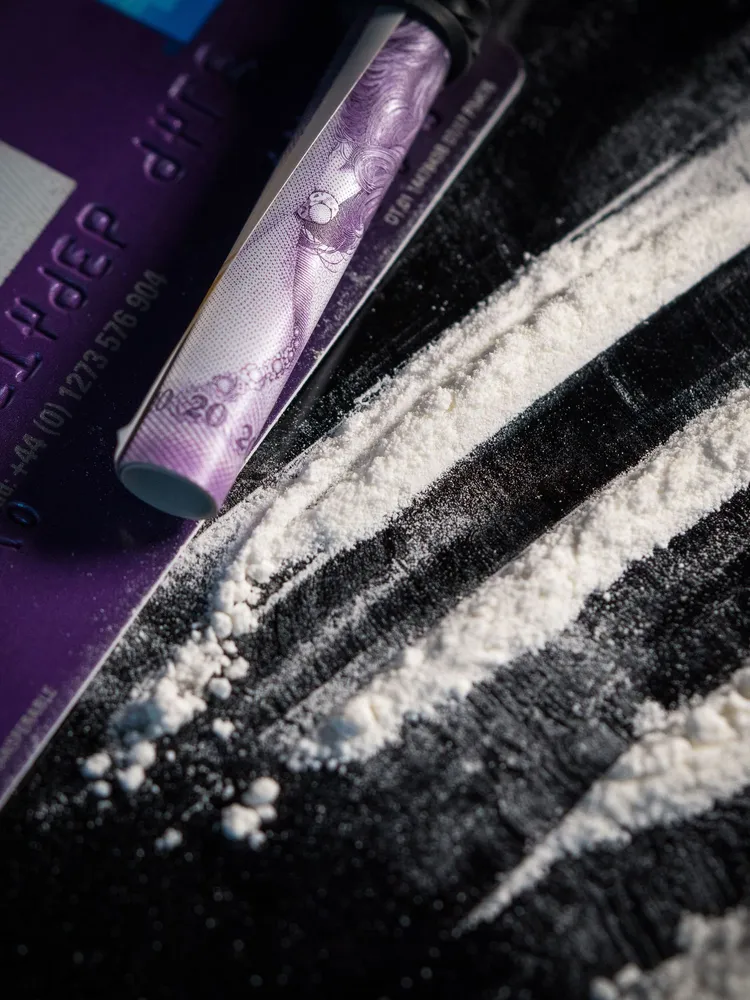If you or a loved one is suffering from Cocaine addiction a detox from use, where the aim is to rid the body of any trace of the drug, is often less severe than with some other drugs. However, the intense cravings that occur when trying to quit can be overwhelming, sometimes causing the user to relapse if they don't have a treatment programme or proper support. Those who struggle with cocaine may also have a problem with alcohol as the substances tend to go hand in hand.
Going ‘cold turkey’, where someone quits cocaine completely without using any form of medication, is the most uncomfortable, but often most effective, way of detoxing. It is also usually the quickest way to get clean; this is why it is often the preferred option, not only for drug users wanting to quit, but for supervised facilities overseeing a user’s recovery, too.
Detox can be dangerous for some people, especially if they're trying to withdraw on their own, and the intensity of withdrawal symptoms are dependent on the length and severity of the cocaine addiction. It can be difficult to achieve full detox without support, so residential rehab is often the best setting for this. There are however options to detox from cocaine at home if the individual involved is suitable. Accessing a detoxification programme, where the individual is medically supervised or monitored, can make sure the process remains as safe as possible.
If you are unsure of what the right treatment path is for you or your loved one you can find out more about inpatient vs outpatient rehab by contacting our Treatment Advisors for a free assessment.

Cocaine is one of the most highly addictive stimulant drugs in existence. Users experience an intense (though short-lived) ‘high’, followed by an equally intense crash when the effects of the drug wear off. Repeated use can lead to paranoia, anxiety, panic attacks and suicidal thoughts. Many users become over-confident and reckless while taking cocaine, which increases the chance of them hurting themselves and others while under the influence of the drug.
If cocaine is damaging your relationships, work, financial situation, ability to function in everyday life or physical and mental health, you need to get help to stop.
Detox alone won’t be enough to treat cocaine addiction that's why at Rehabs UK we provide aftercare as standard as part of a continued recovery plan. Long-term lifestyle changes will be necessary, too as this can help prevent relapse. Maintaining healthy habits like eating good food and getting some exercise is important. Staying as healthy as possible can help strengthen your body and mind. A strong support network is invaluable to those who suffer from addiction, therefore getting involved in support groups can be beneficial. Some individuals may also want to consider treatments such as therapy or courses like Exploring Addiction to gain an understanding of the illness they suffer from to sustain recovery.
Detoxing from cocaine isn’t generally life-threatening but it can cause a user to experience very low moods, depression and suicidal thoughts. This is why in-patient rehabilitation is a good option so that the user can be monitored carefully to ensure they are not at risk to themselves.

Generally, it takes around a week to detox from cocaine misuse; however, symptoms and cravings can continue for weeks or even months after quitting. Cravings are often at their most intense during the first few days – they then subside but can come back anytime at a later date. It is these cravings which can make detoxing from cocaine so difficult.
Concerned about detoxing from cocaine? Speak to a Treatment Advisor who can assess the situation and recommend a treatment plan.


